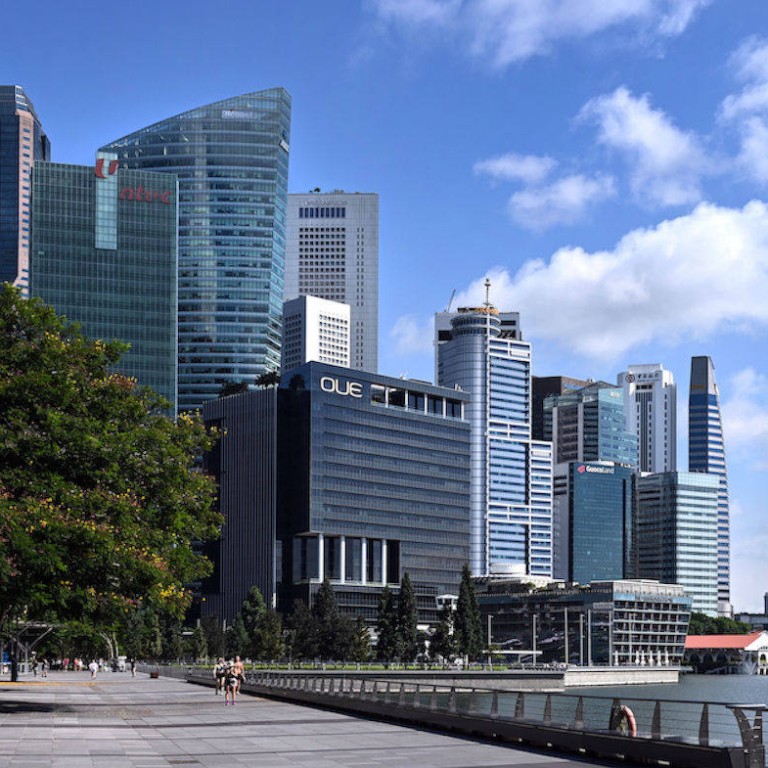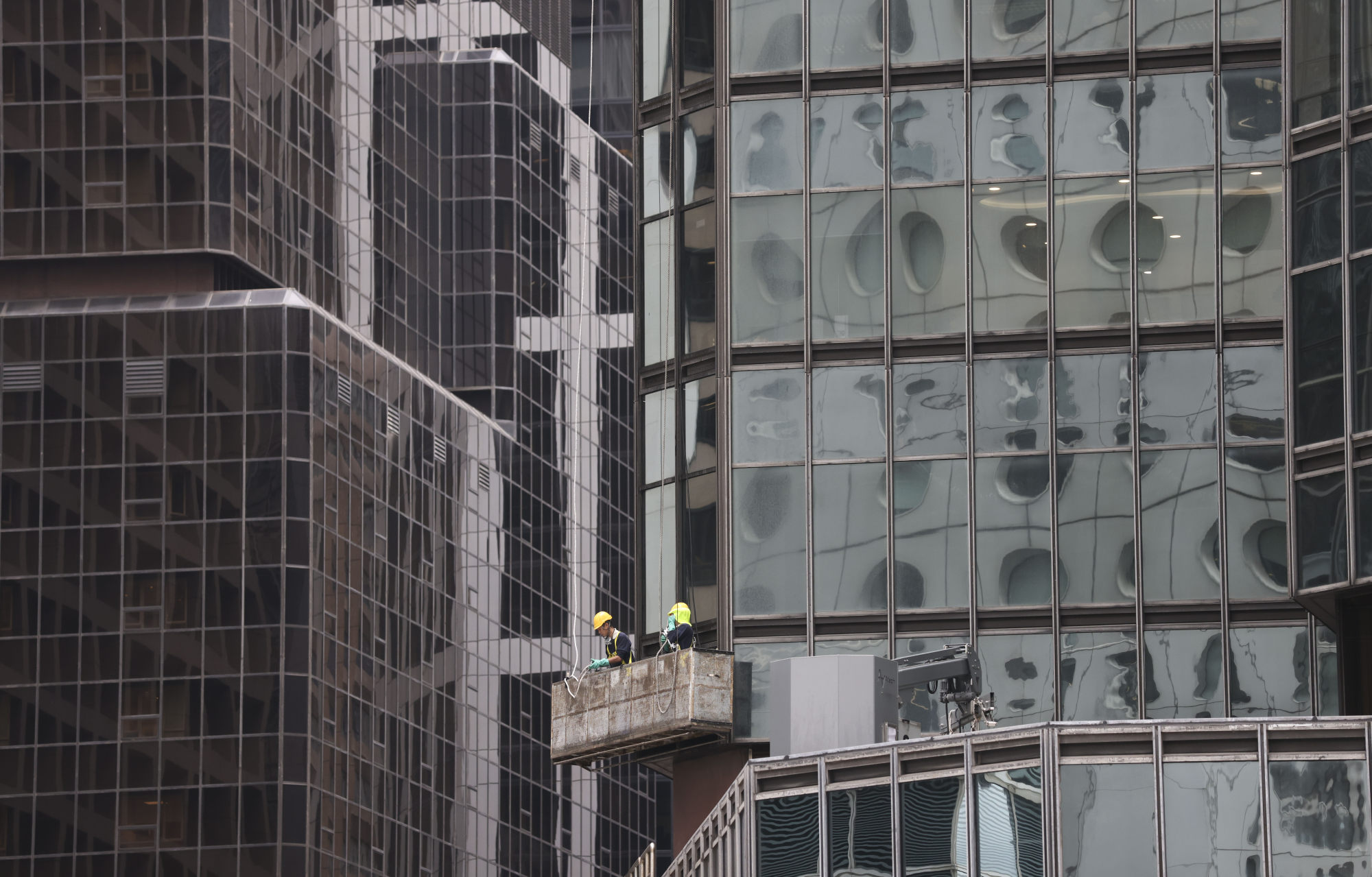
Tapering relocation moves from Hong Kong, looming slowdown threaten Singapore office rents after stellar run
- An end to Hong Kong-based companies’ relocation plans and an anticipated slowdown in Singapore’s economy will weigh on office rents in the city state
- A sharp increase in Hong Kong’s office supply could pull rents lower by as much as 10 per cent this year, according to S&P Global Ratings
“If there’s any softness, it could be felt in the second half of 2023” because of the weakness in Singapore’s economy, said Alan Cheong, executive director of research and consultancy at Savills in Singapore.
“There’s still momentum” left in companies’ shifting from Hong Kong to Singapore, said Cheong, noting that decisions made from 2019 to 2021 were still being executed. “But I don’t think there will be follow-through momentum. The major moves will begin tapering off from now.”
Once all that is “settled” by the first half of 2023, the status quo will be maintained until companies further optimise their strategies by spreading out to Asean from Singapore, for example, Cheong said.
Hong Kong, Singapore leaders discuss Asian growth, dismiss ‘rivalry’ talk
For the full year, Savills expects an overall increase of 2 per cent in Singapore office rents, with rents rising by 3 per cent in the first half before falling 1 per cent in the second half.
“In 2022, we saw a number of companies reallocating headcounts and selective business functions from Hong Kong to Singapore, largely as part of their business strategy to be better positioned to capture the growing Southeast Asian market,” said Tay Huey Ying, head of research and consultancy at JLL Singapore.
“This appeared to have slowed down in the first quarter of 2023, partly as companies opt to put a pause to expansion and relocation plans amid economic uncertainties.”
Huey noted that the macroeconomic environment continues to be “saddled with uncertainties” and has “put a dampener” on business confidence and office demand.
“Backfilling of spaces vacated by relocating occupiers could take a little longer given the subdued sentiment. This is likely to keep rent growth modest, if at all, for the rest of 2023,” she added.
Grade A office rents in the city’s central business district grew 5.9 per cent year on year last year, but quarter-on-quarter growth in the first three months of the year slowed for the second consecutive quarter, according to data from Colliers and JLL. Gross effective rent rose 1 per cent to average at S$11.3 (US$8.5) per square foot per month in the first quarter from the previous three-month period.
Rental growth is likely to deaccelerate further as demand weakens with slower global economic growth, according to Colliers.

Meanwhile in Hong Kong, the office market is facing substantial new supply. And despite upbeat economic forecast, the outlook for office rents does not look bright. Hong Kong’s government has forecast growth of 3.5 to 5.5 per cent this year after GDP contracted by 3.5 per cent last year.
“For offices, we maintain our forecast of a 5 to 10 per cent decline in rents in 2023,” said S&P Global Ratings credit analyst Wilson Ling.
Hong Kong’s office rateable values, the estimated annual rental value, witnessed reductions in core business districts due to surging future supply, cost-cutting relocation strategies and increased incentives granted by landlords, according to CBRE.
The Central and Western districts, as well as Wan Chai, saw rateable values drop by 5.5 per cent and 4.2 per cent year on year, respectively, CBRE said in a report this month, citing Rating and Valuation Department data.
“Despite observing some capital buying into office assets, we are more cautious of this sector,” CBRE said, citing recent global banking turmoil, such as the takeover of Credit Suisse by Swiss rival UBS and looming supply.
“The outlook for [Hong Kong’s] office [sector] is anticipated to remain challenging.”


